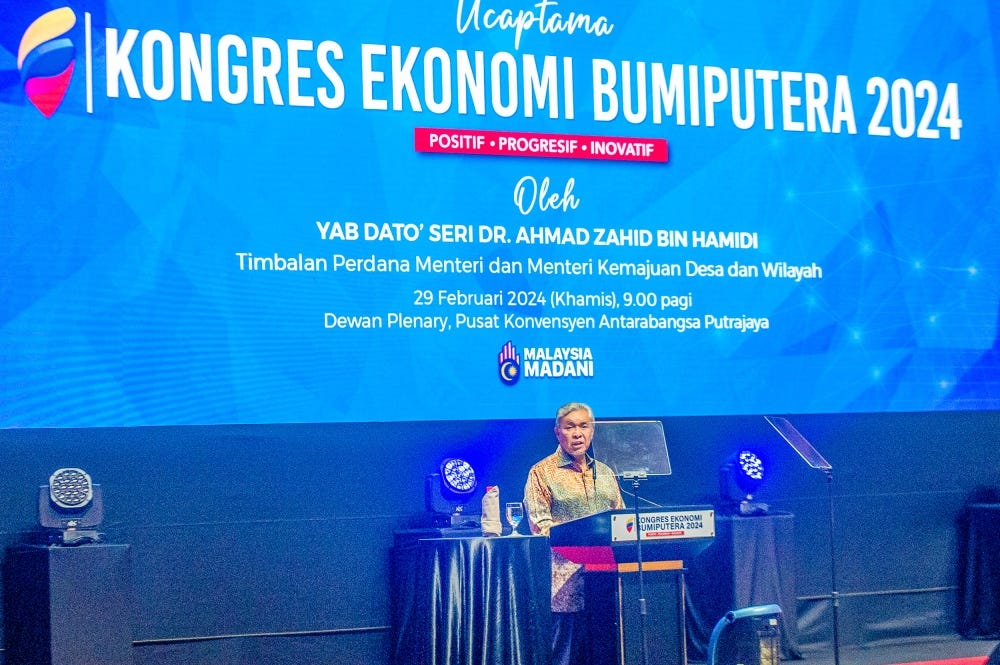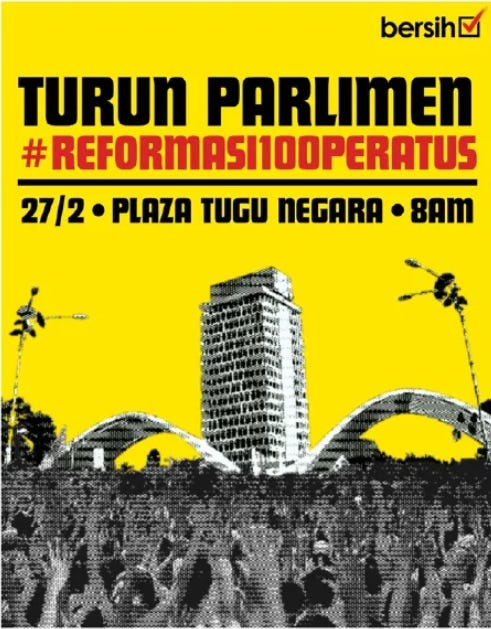Pas-Royalty rift ensures Anwar runs his full term as prime minister

This is just a continuation of a long feud between the leadership of PAS and some of the rulers.
Murray Hunter
Malaysia is back to Malay-centric government and policies
The new Malaysian Yang Di-Petuan Agong (YDPA) SuItan Ibrahim has ensured that Prime Minister Anwar Ibrahim should comfortably serve his full term in government. YDPA Sultan Ibrahim in his Royal Address of the 15th Parliament, said he as YDPA will not entertain any request or move to bring down the government through the presentation of Statutory Declarations (SDs) to claim a majority in the Dewan Rakyat, or lower house of parliament.
The YDPA gave strong support to Anwar and his government by stating “The success or failure of our country does not rest solely on the shoulders of the prime minister, but is the responsibility of all 222 MPs, who have been entrusted by the people to represent them in the government”. Consequently, all must work together to solve the nation’s problems.
This is a devastating blow to the opposition Perikatan Nasional (PN).
The YDPA’s Royal Address was almost immediately rebutted by PAS secretary-general Takiyuddin Hassan, where he rejected YDPA’s call to wait until the next general election to change government. In addition, PAS President Abdul Hadi Awang did not attend the YDPA’s Royal address, claiming health issues. Many see Hadi’s absence as a great sign of disrespect.
PAS-Royal rift
This is just a continuation of a long feud between the leadership of PAS and some of the rulers. Back in June 2022, then Religious Affairs Minister Idris Ahmad sparked the controversy when he advised Muslims not to attend the Bon Odori festival, as he claimed it had elements of Buddhism within it. Idris claimed that JAKIM examined the festival and found that it does have religious elements involved, consequently according to JAKIM’s findings, Muslims should not attend.
This escalated when the Sultan of Selangor told Idris not to use JAKIM to make ‘confusing and inaccurate statements about the festival. The Sultan went on to challenge the minister to attend the festival to see for himself.
Sultan Sharafuddin Idris Shah had decreed to the Selangor Islamic Department (JAIS) and the Shah Alam City Council allow the Bon Odori festive to go ahead, and attend. Meanwhile, Minister Idris Ahmad continued to insist the festival had religious elements.
This led to the PAS Women’s Youth wing to declaring the Bon Odori dance haram, and was met with support from both the Perlis Mufti Dr Asri Zainul Abidin, and Penang Mufti Wan Salim Mohd Noor, who later backtracked on his comments. Dr Asri later suggested that the Bon Odori Festival change its name to avoid confusion.
The PAS insistence that the Sultan of Selangor is wrong, was considered a direct challenge to Royal prerogative, and blatantly disrespected the Sultan’s position as head of Islam in Selangor. Sultan Sharafuddin Idris Shah was also appointed by the Conference of Rulers as chairman of the National Council for Islamic Religious Affairs Malaysia (MKI), and placed JAKIM under his direct jurisdiction.
More recently, there was the arrest of Kedah Menteri Besar Muhammad Sanusi Md Nor at his KL hotel one morning last August, and taken to the Gombak Police Headquarters, where he was charged with Section 4(1)(a) under the Sedition Act 1948, for alleged seditious remarks against the Sultan of Selangor Sharafuddin Shah, on July 11. Under very heavy security at the Selayang Sessions Court, Sanusi pleaded not guilty to the charges, where the matter is now in an ongoing trial.
In the latest spat, Sultan Sharafuddin Idris Shah censured Pas President Abdul Hadi Awang over an open letter urging the Malay rulers to defend Islam, calling this an affront to the Royal institution.
These events have created friction between PAS and some of the rulers.
Changing balance of power
The role of the YDPA over the last few years has become much more important in Malaysia’s democratic process. The YDPA played an important role after the February 2020 Sheraton Putsch, where the Pakatan Harapan fell, and Muhyiddin Yassin, leader of the PN was appointed prime minister. The former YDPA Sultan Abdullah showed his power over the prime minister, when he refused to agree to the calling of a State of Emergency, when Muhyiddin requested it during the pandemic.
The former YDPA played a pivotal role in the formation of the ‘unity government’, after Ahmad Zahid Hamidi, the leader of UMNO, defected from the PN lead group to Anwar’s PH. In the coming GE16, there is a probability the election may also result in a ‘hung parliament’, where no single coalition can form a government in its own right. In such a scenario, the YDPA may have to play a similar role that Sultan Abdullah played after GE14.
The behavior of PN may not place them in good light.
Its well known the present YDPA isn’t positively disposed towards PAS.
With the YDPA flatly stating he will not entertain any SDs to change government, the only option for the opposition would be to call for a vote of no confidence in the prime minister on the floor of the house. However, with the speaker of the Dewan Rakyat Johari Abdul being from the government side, such a vote of no confidence would be almost impossible to organize. This is especially the case when 12 Bersatu MPs have pledged support for the government.
The only option would be to vote against a money bill, which would cause chaos within the government. Its also doubtful PN will be able to make the same inroads at the coming Melaka (2026) and Johor (2027) State elections that they did in the state elections last August.
Malaysia is back to Malay-centric government and policies
The government will maintain the same trajectory, which was confirmed at the Bumiputera Economic Congress last week. There was nothing transformative at the congress, just a continuation of the NEP under a different name. Government policies will be still focused on assisting elite Malays, rather than the marginalized, who have just realized the burden of tax is now greater for them.



